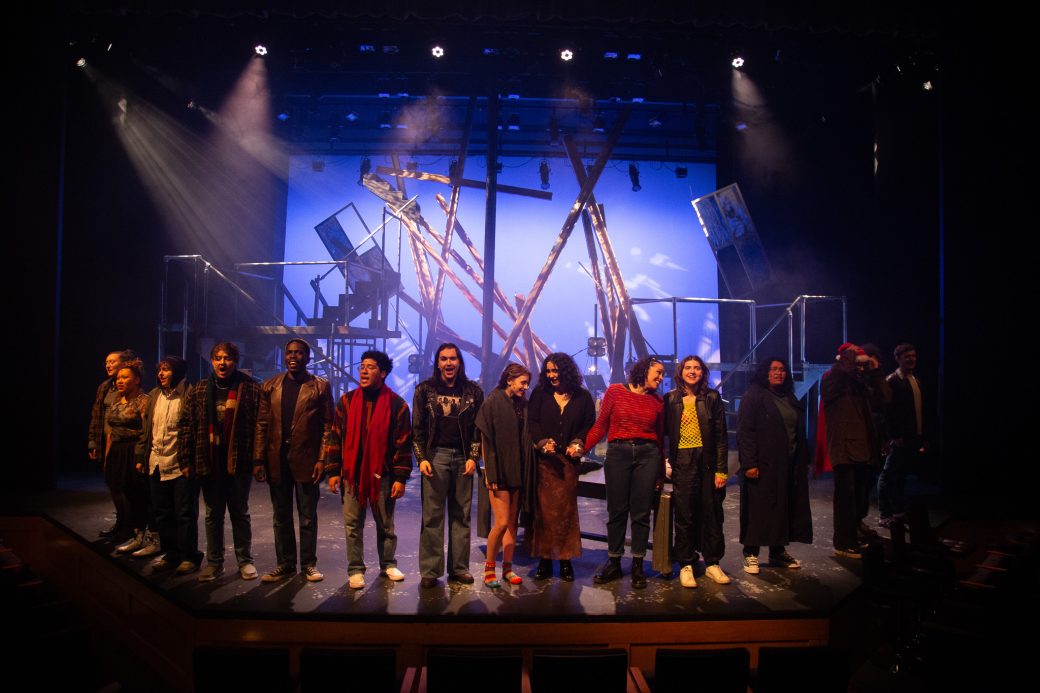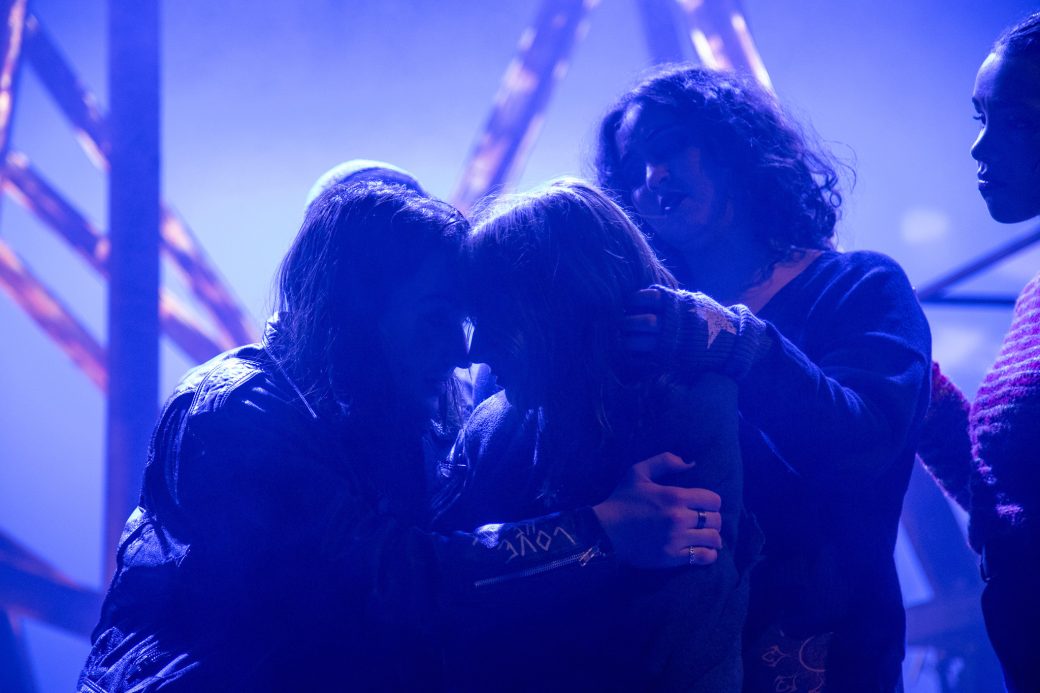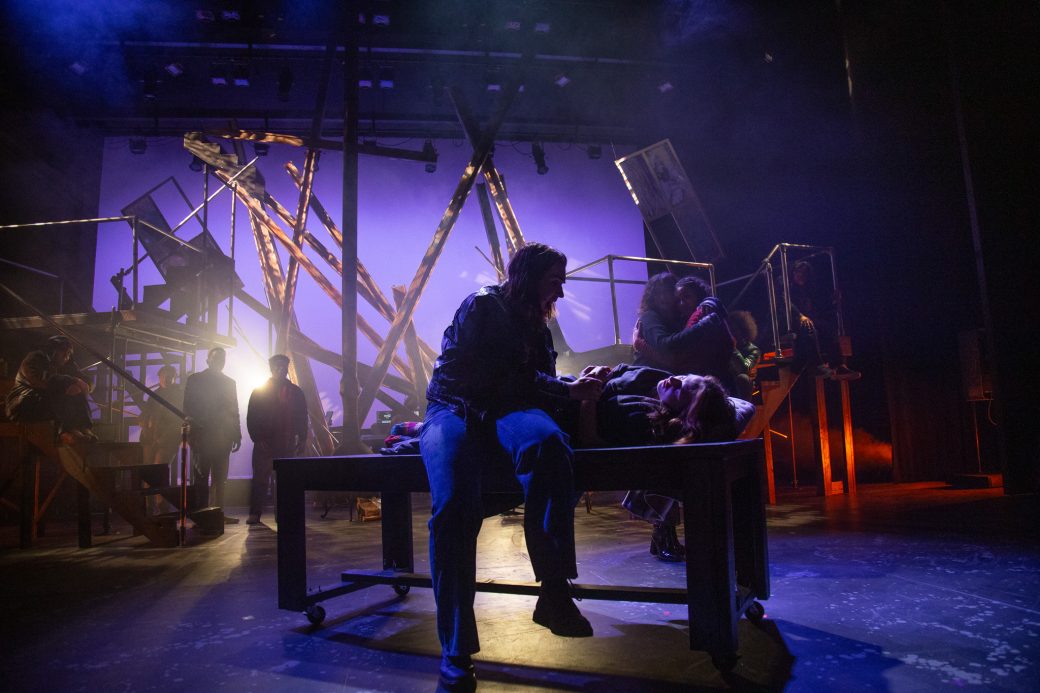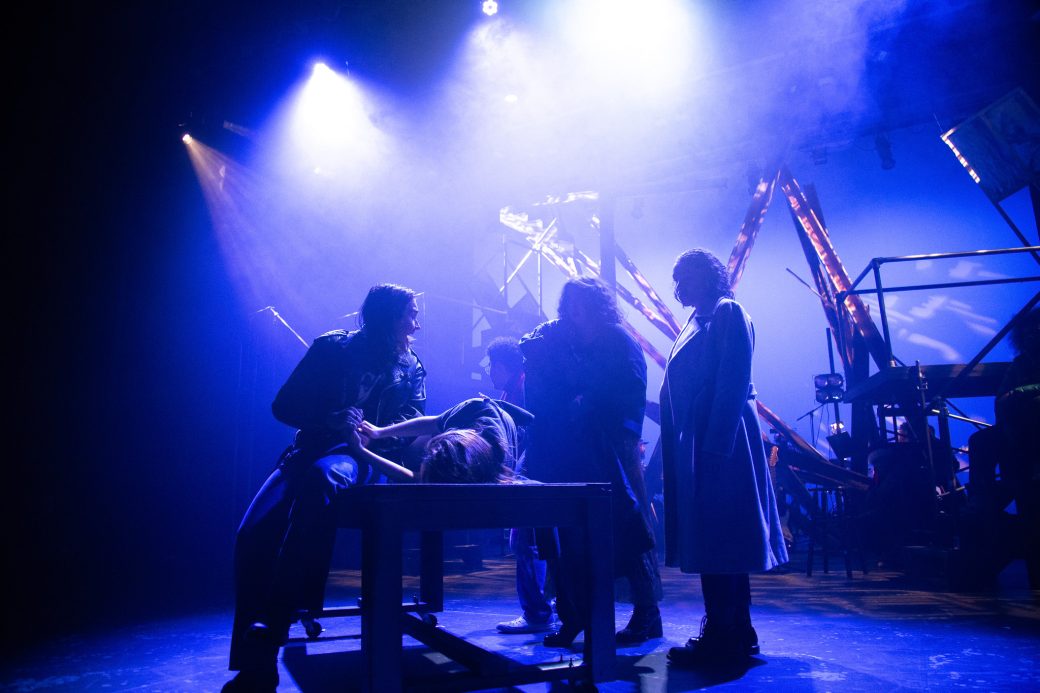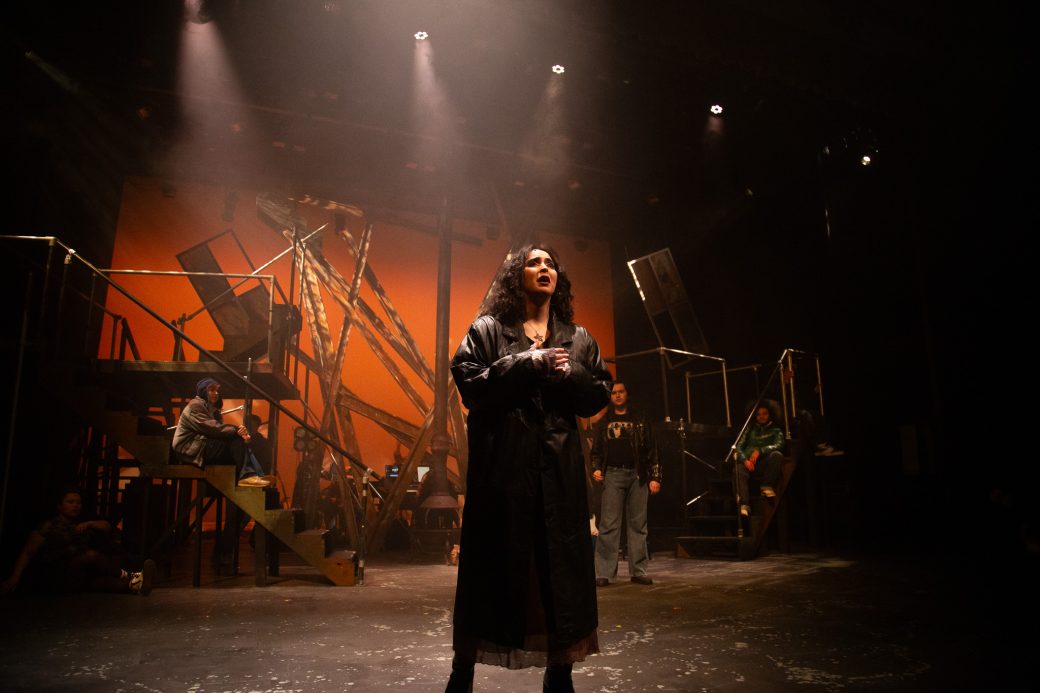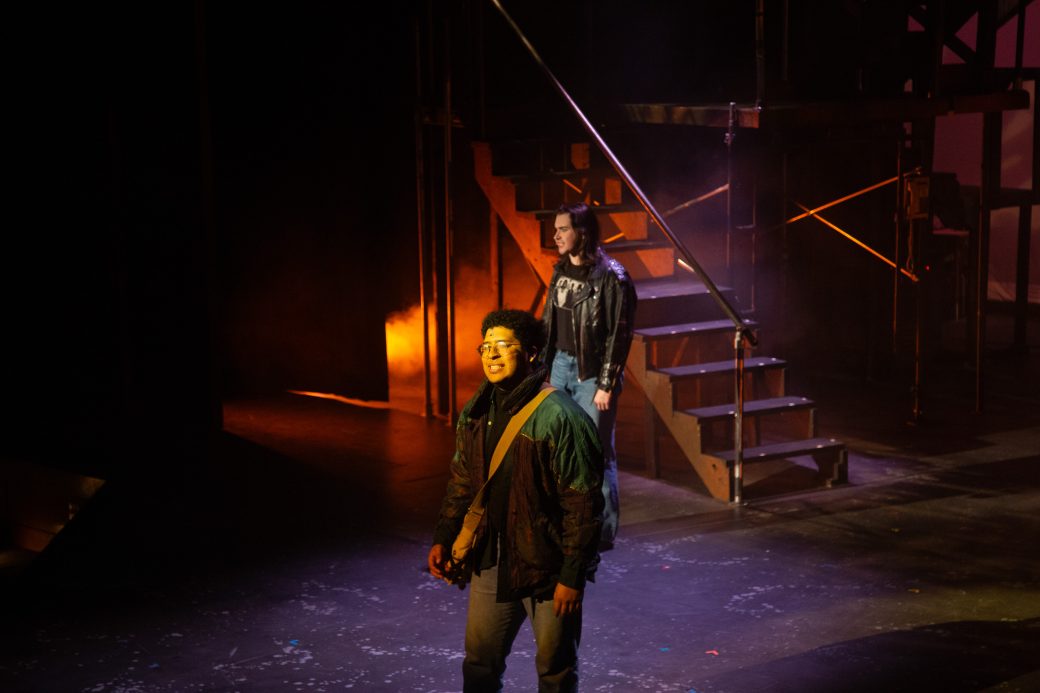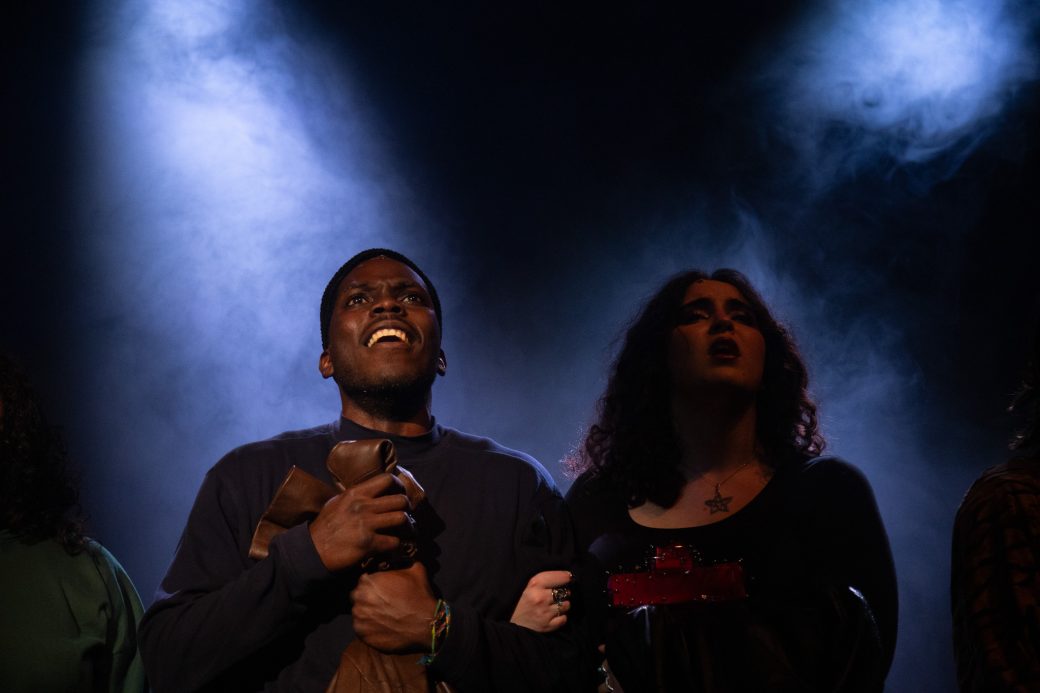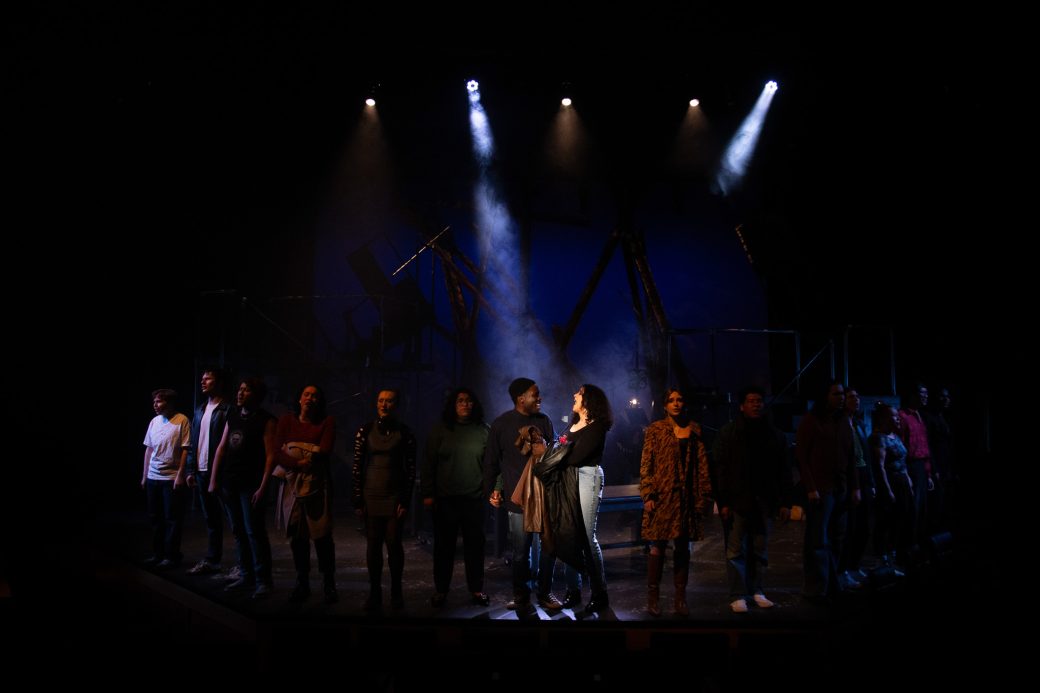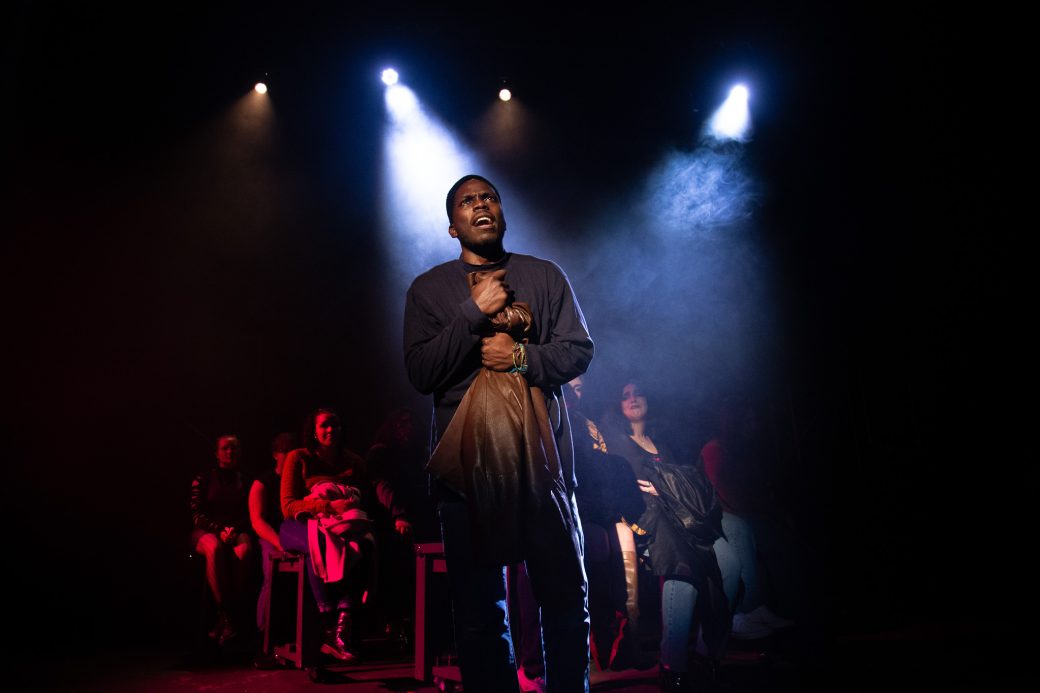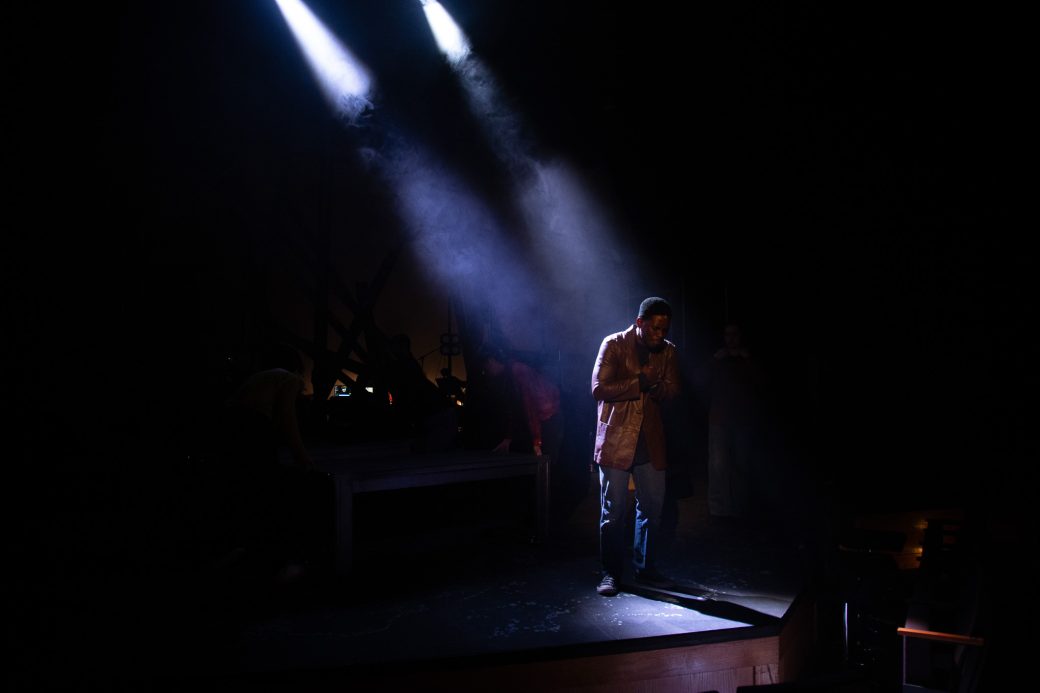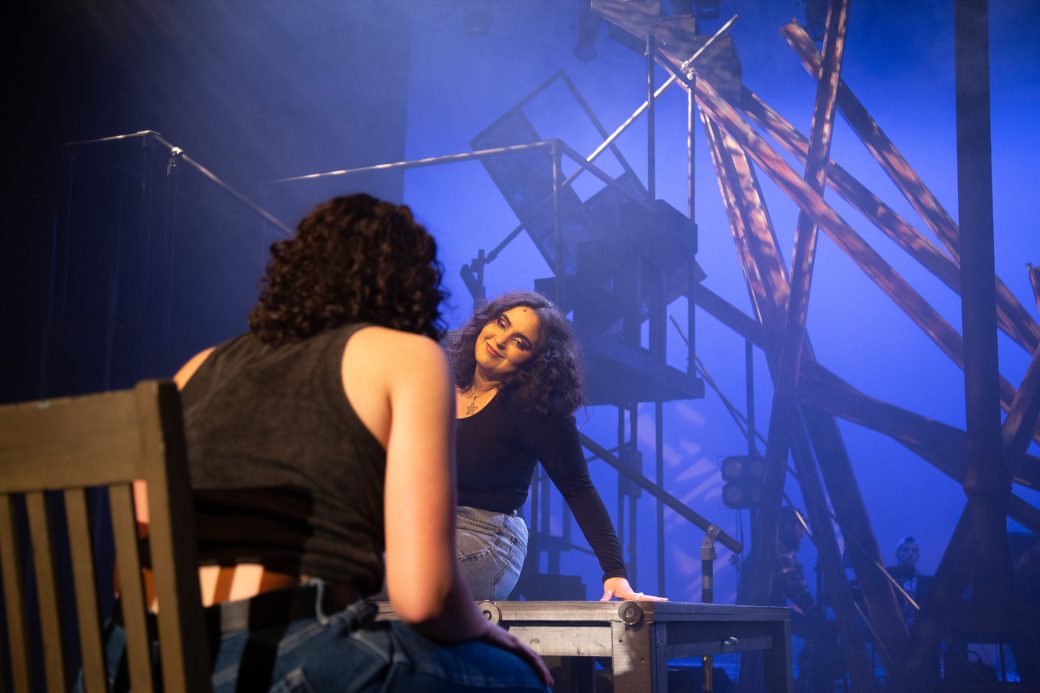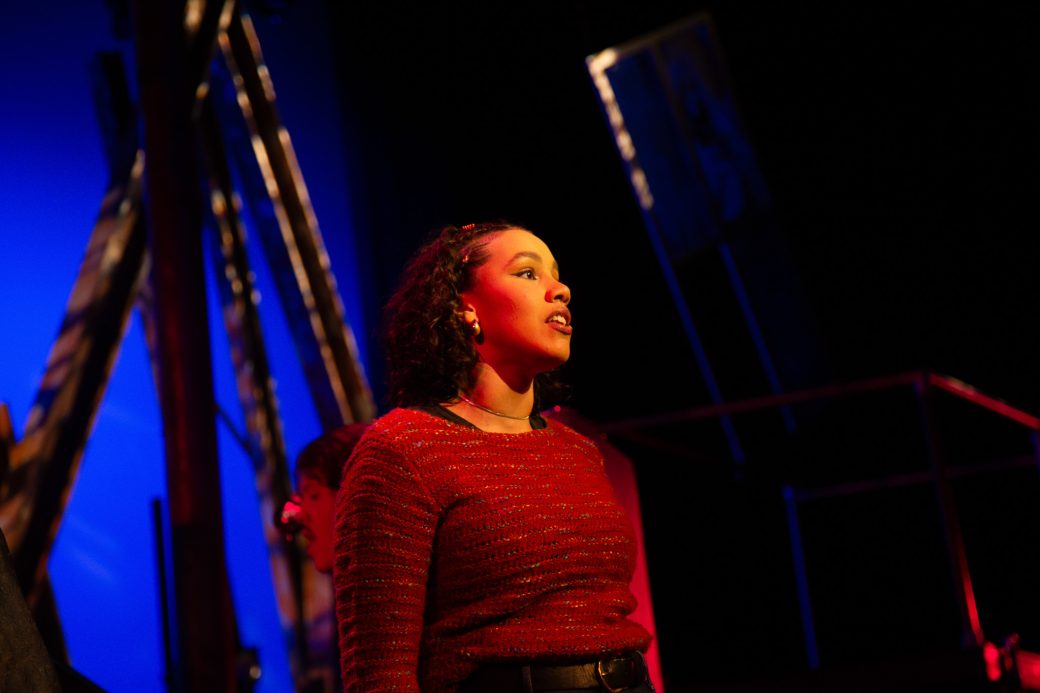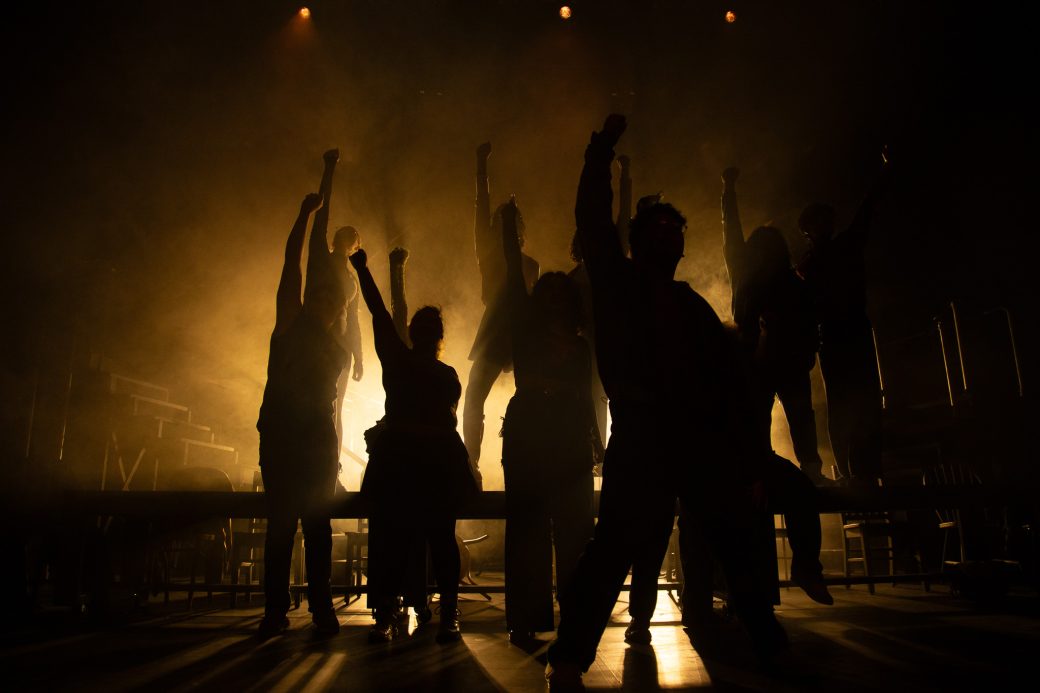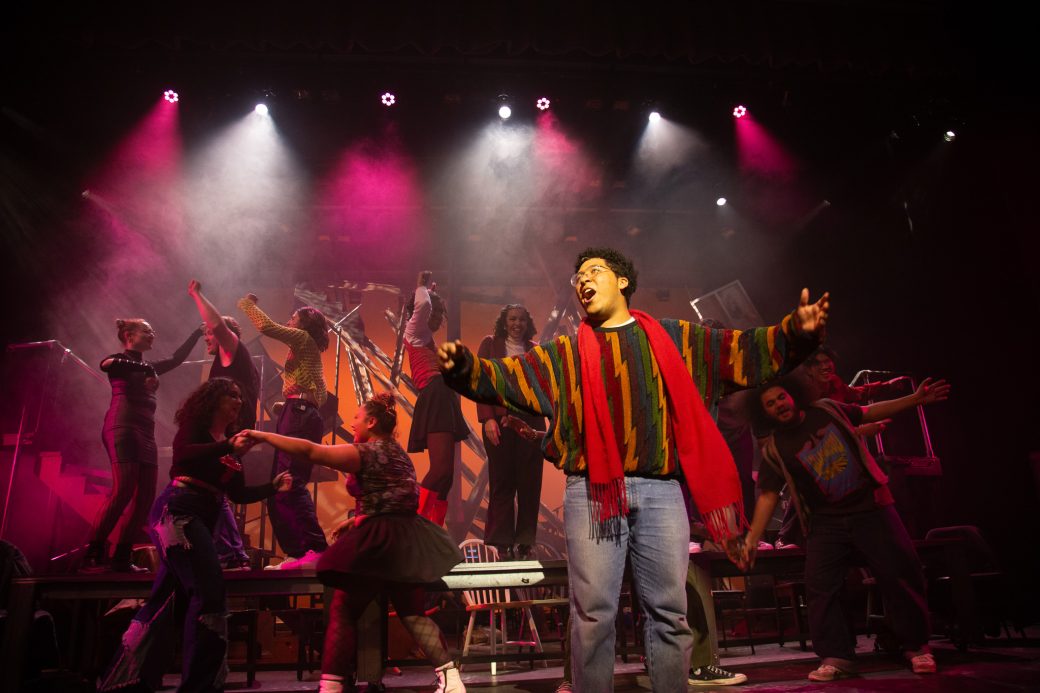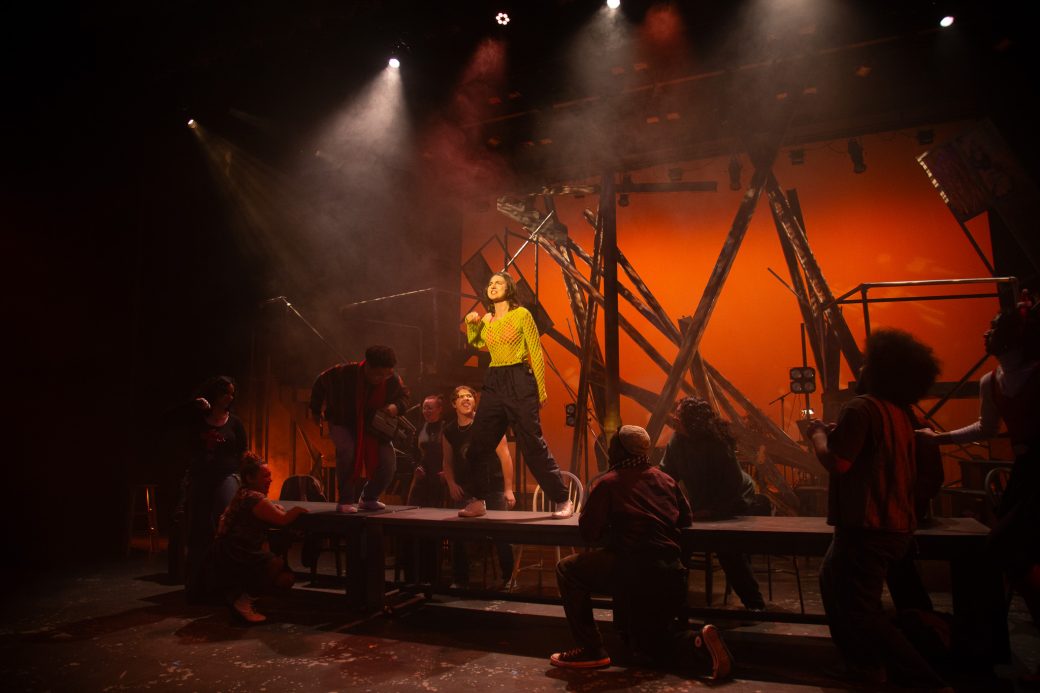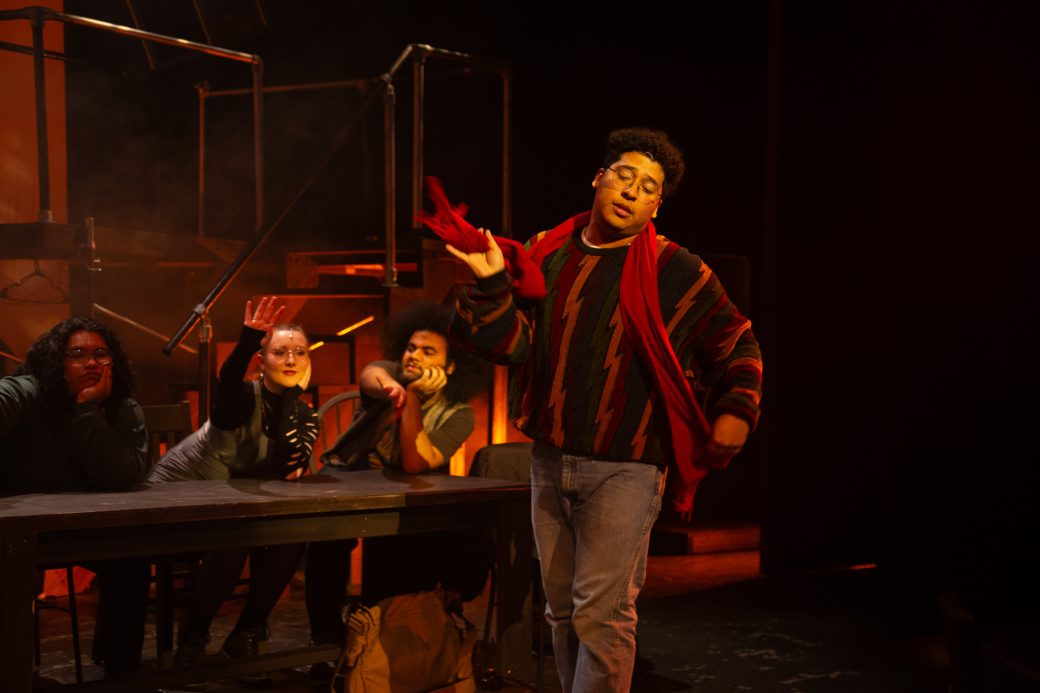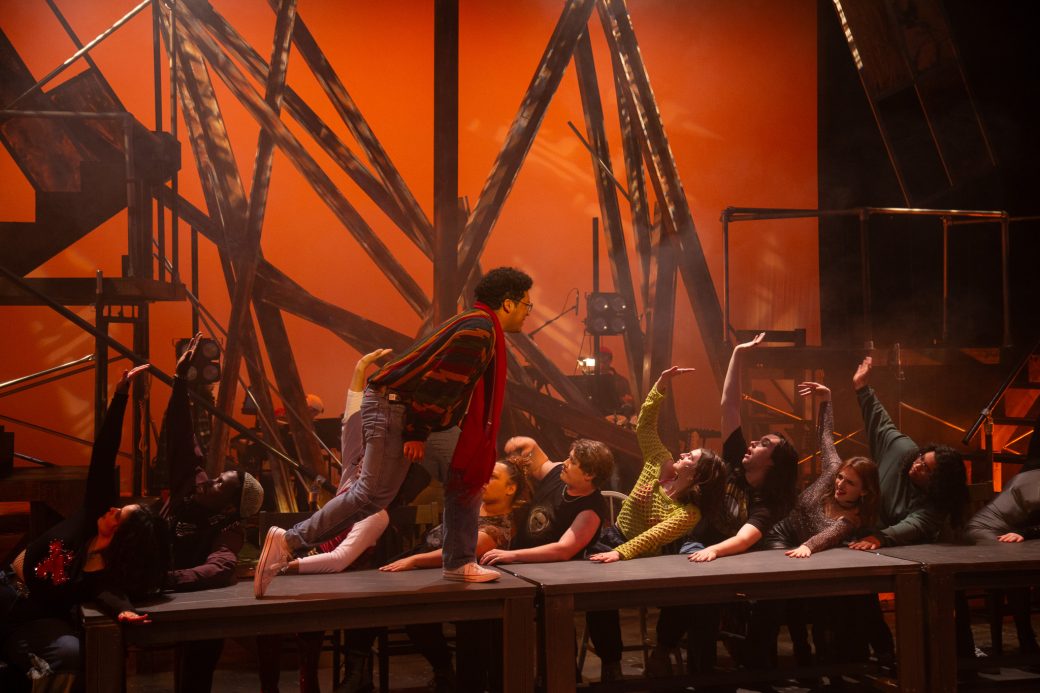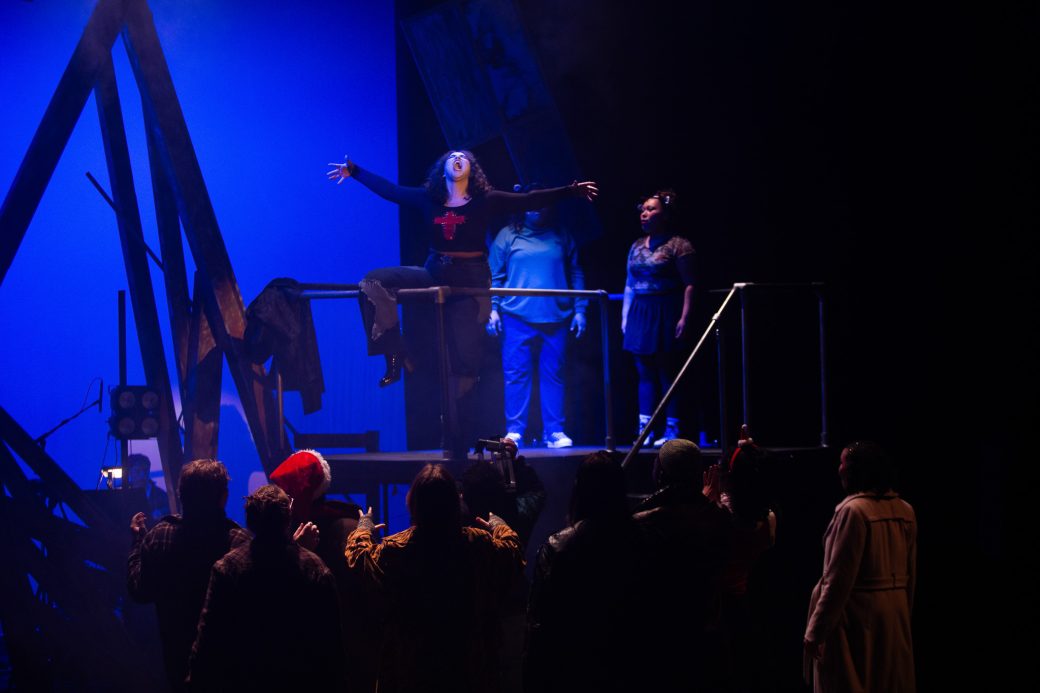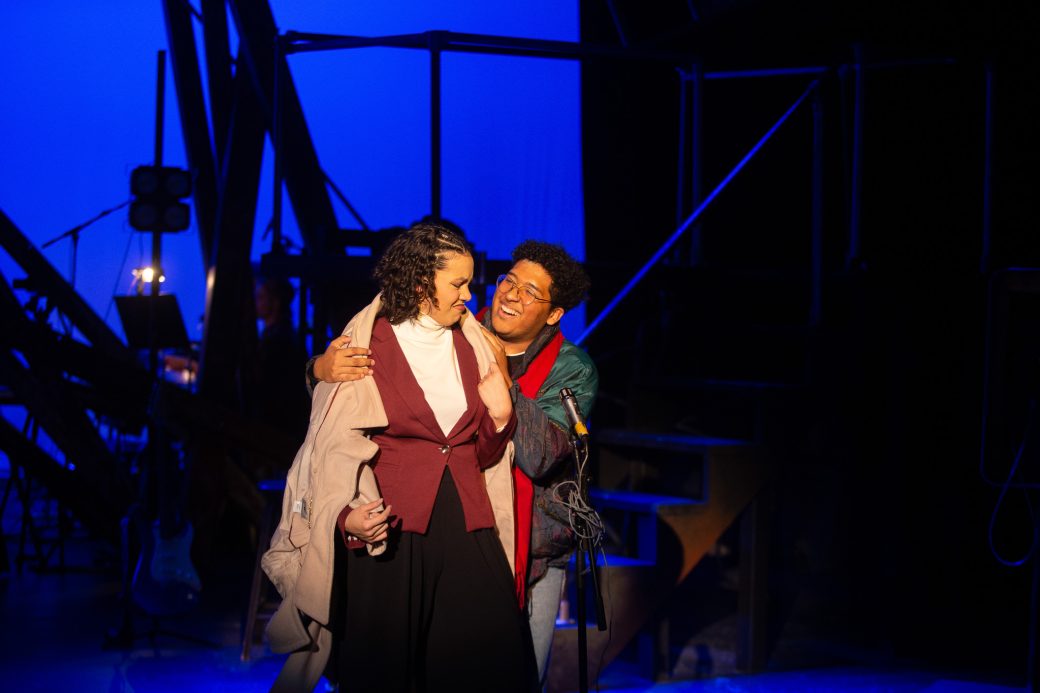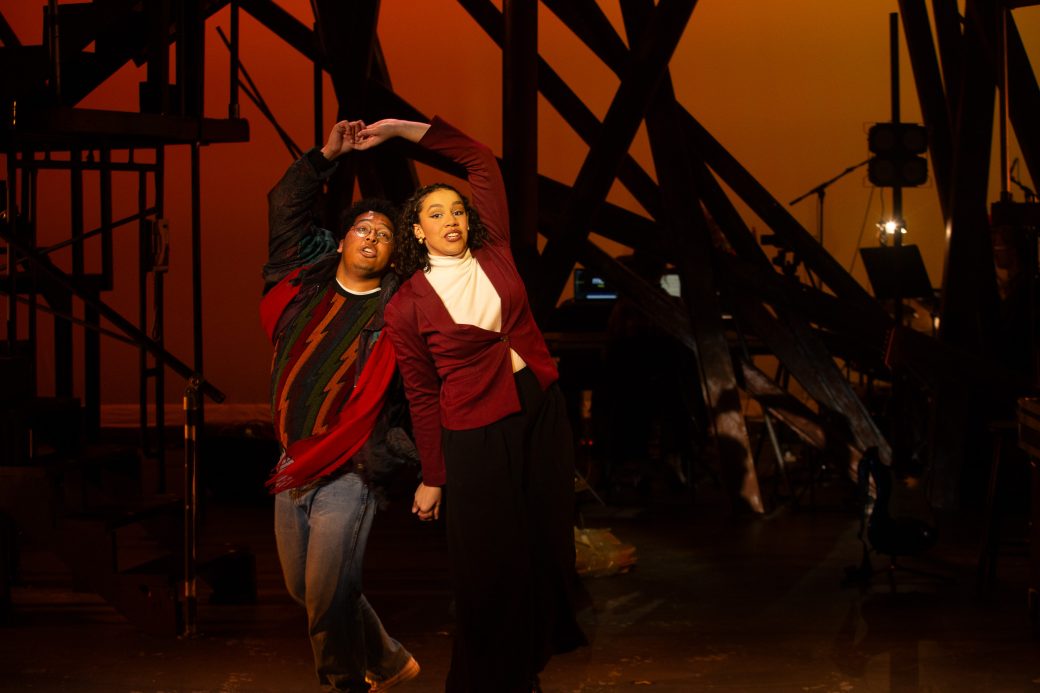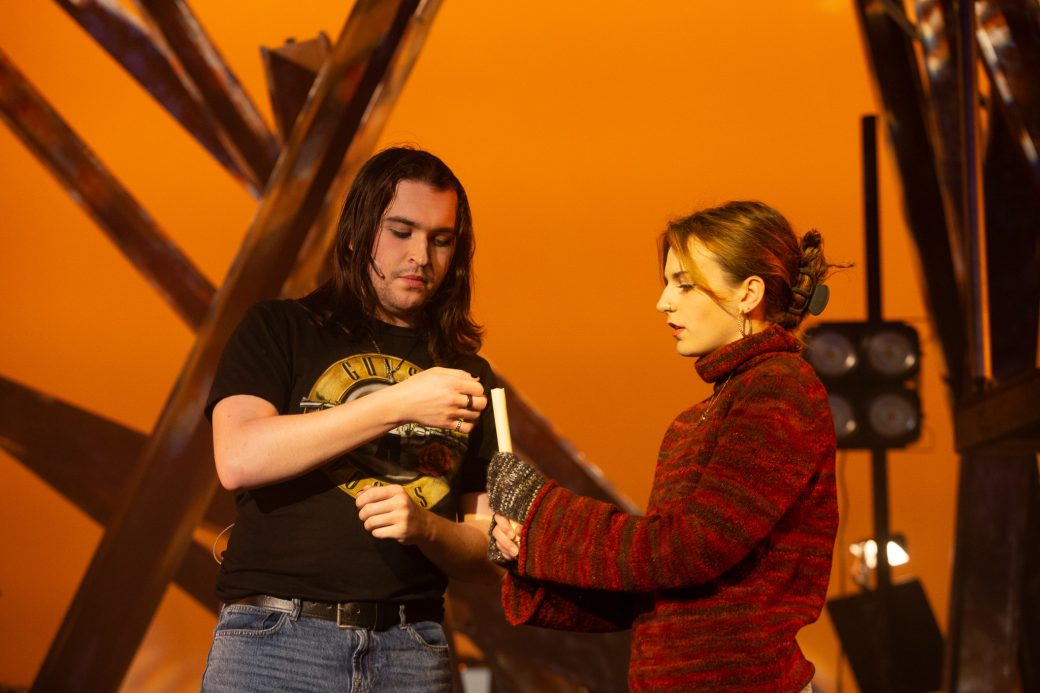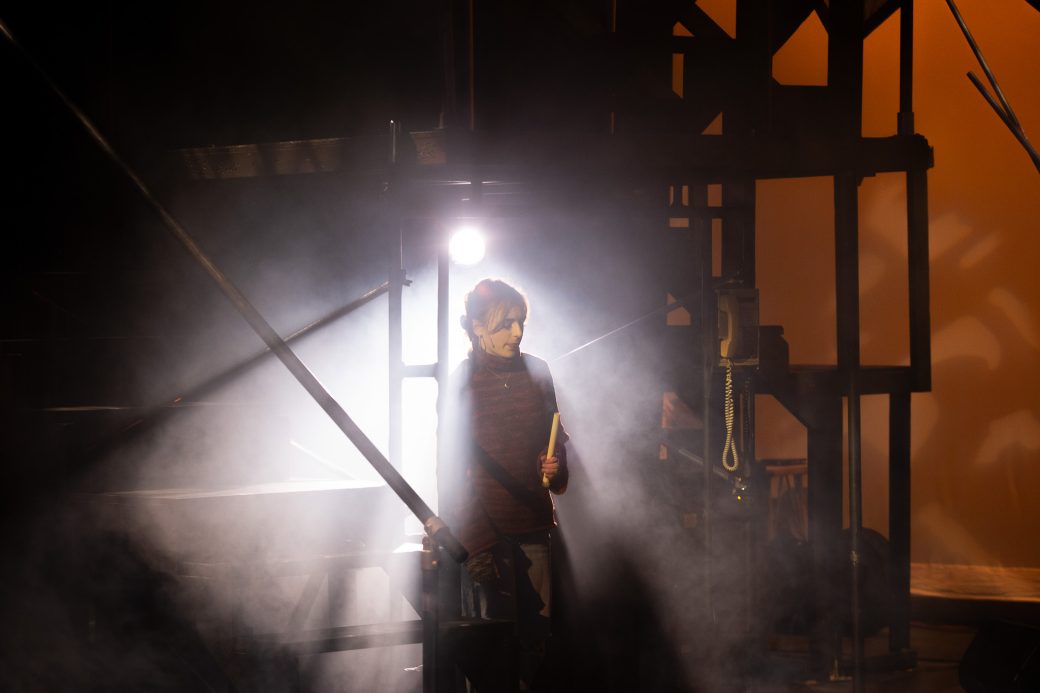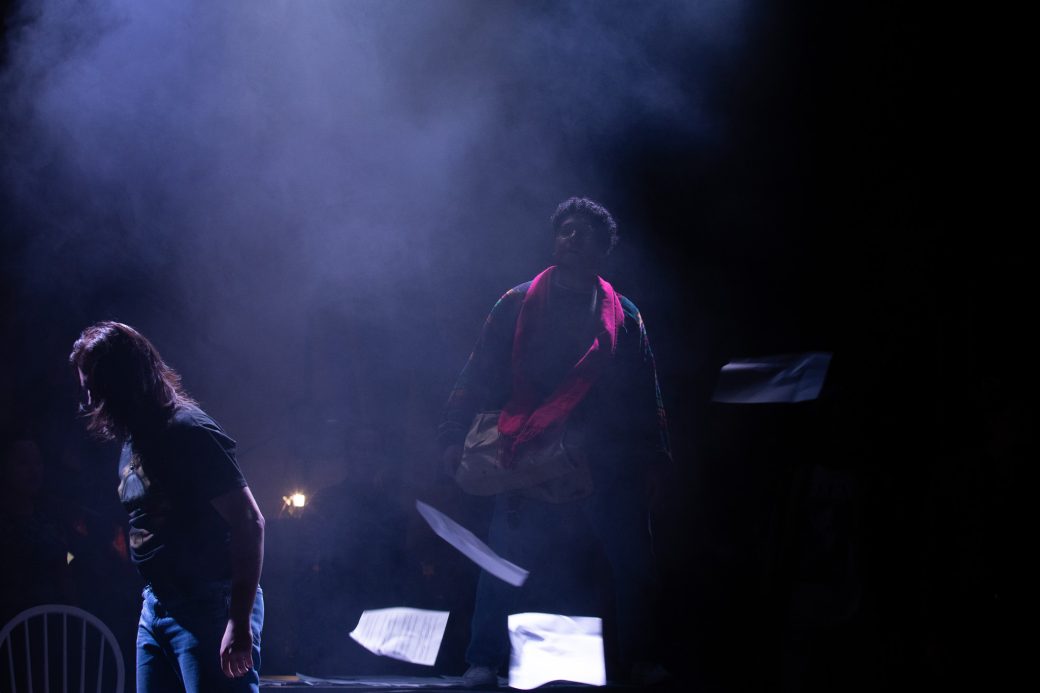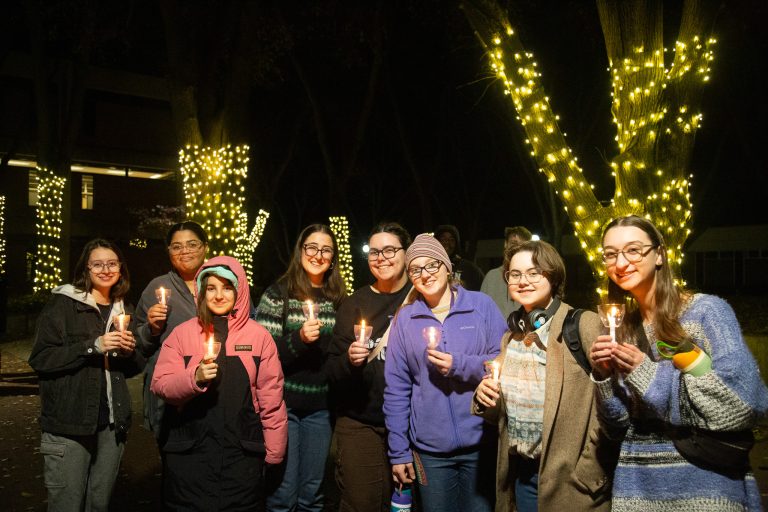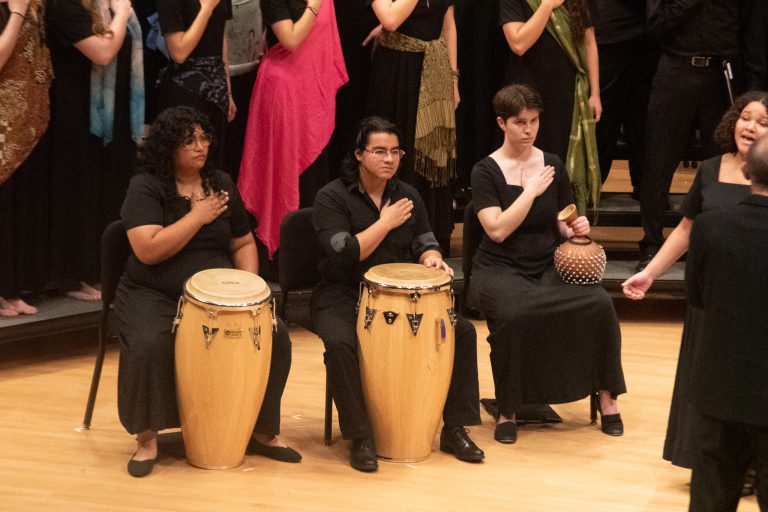On Sunday night, students, faculty and staff marked the beginning of Advent by illuminating the campus together.

News
2025 Spring Mainstage Musical: Rent
Mar 24 2025
Goshen College’s spring mainstage musical, Rent, followed the lives of a close knit group of young artists navigating conflicts, dreams and love in New York City’s East Village in the late 1980s.
All photos by Daniel James ’24
Director’s Note about the Goshen College production of RENT:
“(Side eye. Sniff.) I thought Goshen was a Christian college.”
Actual response from a conference attendee on hearing that GC was producing Rent
To be honest, Scott Hochstetler and I expected most people to react like this when we announced the 2025 spring musical. Instead, for the last ten months, I’ve enjoyed colleagues dancing up to me at the dining hall, clapping their hands and expressing delight. “Rent is my favorite musical,” they said, again and again. Nevertheless, I remain curious about concerns. This musical takes place at the height of the AIDS crisis. It contains moments of violence and is known for frank discussion and depiction of sexuality. Rent is rife with swear words. Perhaps folks harboring doubts don’t want to approach me. The question remains: does this story align with our values as an institution? If so, how?
Stories are powerful. Some scholars believe that theatrical storytelling predates language, helping humans survive through social cooperation. Theatrical storytelling remains sacred to me as a person because connecting voices with audiences is my strategy for making our world more just and kind. No other human activity allows individuals to bring the full depth and breadth of their experience, imagination, and knowledge together. No other pursuit has such phenomenal potential for results greater than the sum of the parts.
The musical Rent examines the ways we stay in relationship with one another. The story demands that its characters love one another as Jesus intended: with their flaws, through their flaws, and not in spite of those flaws. When characters on stage forgive one another, atone for their actions, and grow, it sets an example for all of us to do the same.
Let us accept this lesson about practicing active love for God and neighbor. Let us accept every person for their gifts, wherever they’re from, whomever they love, whatever language they speak, and however little they have.
Our nation, indeed, our world, must remember that the almighty measures us in love, not accomplishments or dollars.
Amy Budd, Associate Professor of Theatre
